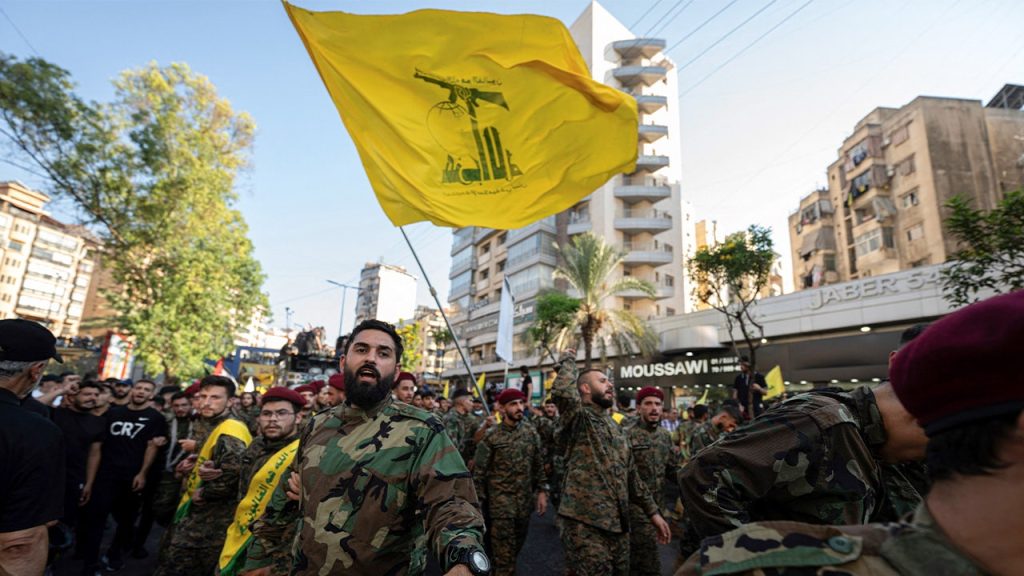On Tuesday, Israel issued an unequivocal warning to Lebanon, threatening to hold the entire country accountable if the fragile cease-fire with Hezbollah falters. Israeli Defense Minister Israel Katz asserted that the Israeli government would abandon its previous practice of differentiating between Hezbollah, the militant group, and the Lebanese state itself. Katz emphasized a change in Israel’s response strategy, committing to a “maximum response and zero tolerance” framework should hostilities resume. He specifically urged the Lebanese government to take decisive action through its military to restrict Hezbollah’s activities to prevent further conflicts. This includes enforcing a provision from the recent 13-point cease-fire agreement requiring that only the Lebanese army operates south of the Litani River, a region critical to the country’s security and stability.
Katz’s warnings came on the heels of recent violence, notably Israel’s retaliatory strikes following Hezbollah’s mortar fire targeting the Mount Dov area in the Golan Heights, a territory that remains contested internationally but has been occupied by Israel since 1967. The intensity of the conflict is underscored by fatal consequences from these exchanges, with reports indicating that Israeli airstrikes killed 11 individuals on Monday evening. Katz specifically pointed to a shift in Israeli military policy, stating that previous distinctions between the broader Lebanese state and Hezbollah would no longer apply, marking a potential escalation in military engagements should the cease-fire collapse.
The backdrop to these developments involves ongoing tensions between Israel, Hezbollah, and international diplomatic efforts to stabilize the region, especially after accusations of repeated Israeli violations of Lebanese airspace. The resurgence of hostilities after the cease-fire was initially brokered by the U.S. and France has raised concerns among world powers. Reports indicate that both the U.S. and France have urged Israel to adhere to the cease-fire terms; however, allegations of Israeli surveillance activities over Beirut have complicated these discussions, further straining relations and igniting tensions.
In light of the deteriorating situation, White House National Security Council adviser John Kirby responded to the implications of the recent violence, stating that what was being observed could be categorized as sporadic. He noted a significant decline in the overall level of violence since early October, where the conflict saw a surge in rocket attacks from Hezbollah offset by Israeli airstrikes well into the double digits. Kirby acknowledged the ongoing complexity of the Israeli-Hezbollah conflict, which poses continuous risks for both military and civilian populations in the region.
Nonetheless, Kirby maintained that there are existing mechanisms in place designed to mitigate further escalatory violence between the two adversaries, although he did not divulge specific details regarding the operational aspects of these systems. His comments suggest that diplomatic efforts are still ongoing to reinforce stability along the Lebanon-Israel border and to prevent a potential war that could engulf the broader region. The American perspective highlights a measured approach, focusing on balancing military responses with efforts to maintain an increasingly fragile peace.
Overall, the volatile relationship between Israel and Hezbollah, compounded by the necessity for the Lebanese government to manage internal security dynamics, creates a precarious situation. Katz’s warnings signal a potential shift to a more aggressive posture by Israel, an alarming prospect that may have profound implications for not only Lebanese sovereignty but also for regional stability. The international community continues to watch closely as tensions mount, and strategies for diplomatic engagement remain pivotal in addressing the delicate security landscape in the Levant region. Failure to maintain the cease-fire could lead to dire consequences, perpetuating a cycle of violence that has historically characterized Israeli-Hezbollah relations.

